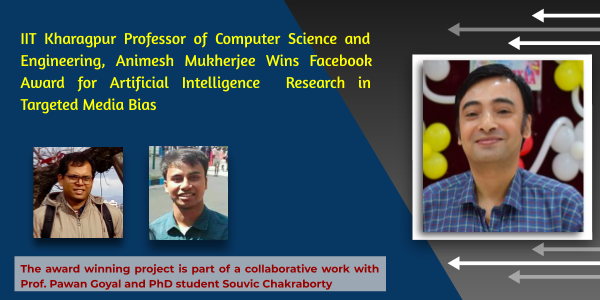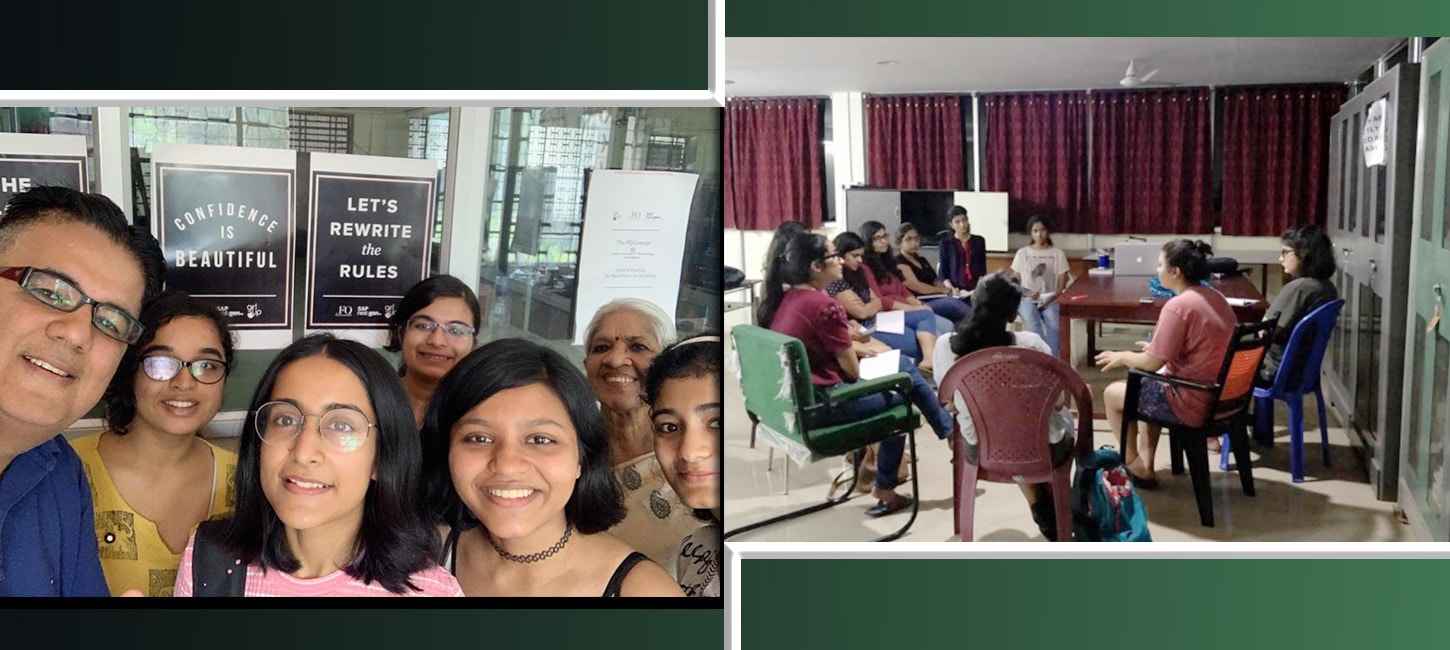
Facebook Awards IIT KGP’s AI Research
Indian Express Financial Express The Week Times Now Hindustan Times NDTV Business Standard Animesh Mukherjee, Associate Professor at the Computer Science and Engineering, IIT Kharagpur has been selected for the Ethics in AI Research Award in the ‘operationalizing ethics’ category for his project “Targeted Bias in Indian Media Outlets”. The Award is part of Facebook’s initiative to encourage research on AI ethics and address intricate challenges and complex ethical questions in the AI domain. The award-winning project is part of…

